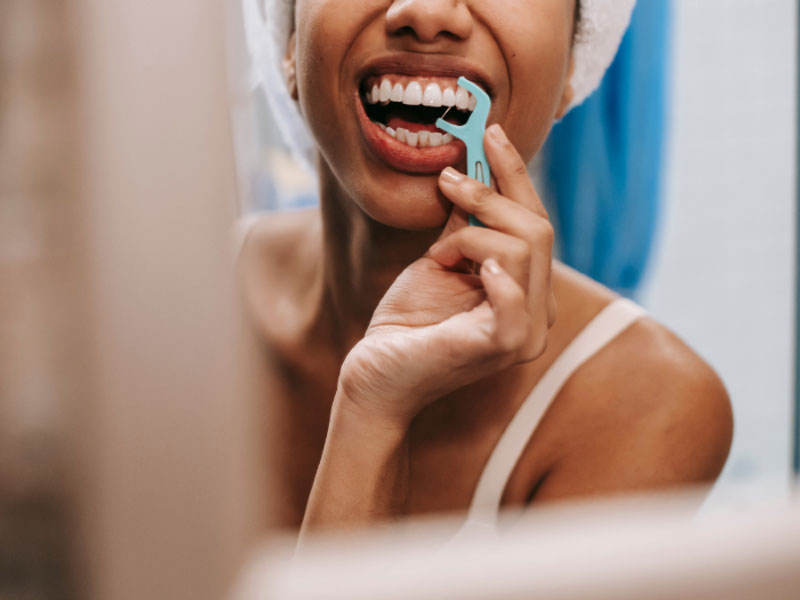Is Flossing Really Worth It?

The benefits of flossing have been questioned following media claims that evidence to support the practice is dubious. This may have left parents wondering whether it’s worth the hassle of teaching their kids how to floss and meeting the ongoing challenge of encouraging them to do it every day.
The short and simple answer to the question “Is flossing really worth it”? is a resounding YES! Flossing lessens the risk of gum disease and tooth decay by removing bacteria-ridden plaque from places a toothbrush can’t reach. Shaky evidence in favor of flossing is not proof that it’s ineffective but may point to limited or flawed investigation.
The debate about flossing began when global news agency Associated Press (AP) circulated a story claiming that U.S. federal health chiefs had admitted that recommendations on flossing weren’t based on official research. The news agency conducted its own flossing investigation by examining more than 20 studies on the subject carried out over 10 years. Associated Press concluded that evidence reinforcing the importance of flossing was low quality, weak and unreliable, and had a potential for bias.
Since the AP story was circulated in August 2016, it has been picked up by media outlets worldwide, with headlines like “Medical Benefits of Flossing Unproven”. This sensationalism undermined a key element of commonsense oral hygiene and called the trustworthiness of dental professionals into question.
Why Flossing is Still Crucial
Dental experts in the U.S., Canada and other countries have responded to the AP story by insisting that flossing is still essential to help maintain healthy teeth and gums. The ADA (American Dental Association) maintains that flossing plays an indispensable role in oral hygiene at home and can eliminate up to 80 per cent of plaque. The organization recommends brushing your teeth twice a day, cleaning between the teeth daily with an interdental cleaner such as dental floss and having regular dental check-ups.
The Canadian Dental Association (CDA) insists that the perceived fragility of evidence backing the value of flossing reflects the difficulty of conducting the necessary studies – not the effectiveness of flossing itself. The CDA maintains that flossing, along with a healthy diet and regular dental check-ups, is crucial for oral healthcare.
Dental experts in the U.K. also advise people to continue flossing in the wake of the 2016 controversy. The British Society of Dental Hygiene and Therapy (BSDHT) said regular interdental cleaning with floss was still an essential part of oral healthcare. The organization said that although flossing may not have been proven to be effective, a major problem of research so far was that it jumped to conclusions that could not be applied to everyone.
Wrong Flossing Techniques May Be to Blame
U.S. dental hygiene expert Kara Vavrosky, a registered dental hygienist and member of the American Dental Hygienists’ Association (ADHA), asserted that the Associated Press research itself was biased, and its story patently false.
She referred to a 2006 study on the effects of flossing among children aged four to 13. Those who were flossed by a professional showed a 40 per cent decreased risk of cavities. Although flossing at home showed no lessened danger of tooth decay, Vavrosky says this indicates incorrect flossing techniques rather than an inherent flaw in the process. So, research into the value of flossing may be misleading because some people don’t floss properly. Running a thin cord between your teeth may sound a simple procedure but there’s more to the process than that – there’s a right way and a wrong way to floss.
Dental experts say people often use too little floss and go at it too hard, which can do more harm than good. Another problem is failing to get a good grip on the floss and not angling it correctly. Research conducted in 2017 in consultation with the American Dental Association discovered that some people in the U.S. use potentially dangerous and inappropriate items – including folded paper, cutlery, safety pins and strands of hair – as a substitute for proper flossing. The ADA stresses the importance of only using safe and hygienic flossing products, ideally those that have the organization’s Seal of Acceptance.
Flossing to Prevent Gum Disease
Brushing only gets rid of plaque from the front and back surfaces of teeth. Flossing eliminates plaque from between your teeth and underneath the gums – hard-to-reach areas where the most destructive bacteria reside. Failure to remove plaque from these spots can cause gum disease, such as gingivitis or periodontitis, which can result in tooth loss. These infections stem from a build-up of plaque – a sticky film containing millions of bacteria – on the teeth around the gum line.
Everyone gets plaque because bacteria grow naturally in the mouth. However, if it’s not removed, it can harden into tartar (calculus), and this calcified plaque attacks tooth enamel and penetrates below the gum line. As the germs in plaque and tartar grow and spread, they aggravate your gums, causing inflammation. It’s difficult to see plaque, but tartar – a build-up of minerals – may be visible above the gum line, as a yellow or brown stain. Brushing and flossing won’t get rid of tartar, only a professional cleaning by a dentist or dental hygienist.
Encourage Your Kids to Carry on Flossing
In the aftermath of the media hype about whether flossing is worth it, dental experts remain unanimous that interdental cleaning is vital to maintain oral health – particularly in children – by preventing cavities and gum disease. If you introduce your kids to flossing at a young age, they’re likely to continue the routine into adulthood, helping to keep their teeth and gums healthy. The best time for your kids to floss is just before bed, giving bacteria less chance to breed while they sleep.
Regular professional cleanings by a dentist or dental hygienist – preferably one specializing in preventative dental care for kids – are also important. These visits will also give the dentist the opportunity to check for any teeth or gum problems, so they can be treated early, before developing into serious issues.
If you’re still asking yourself whether flossing is really worth it, just ask our dentist, Dr. Marc McRae, or one of our dental hygienists. They’ll be happy to answer any of your questions. Feel free to contact Willow Springs Dental today!




Please login to publish a comment.
Comments (0)